“Wasl” Newsletter: Issue 15
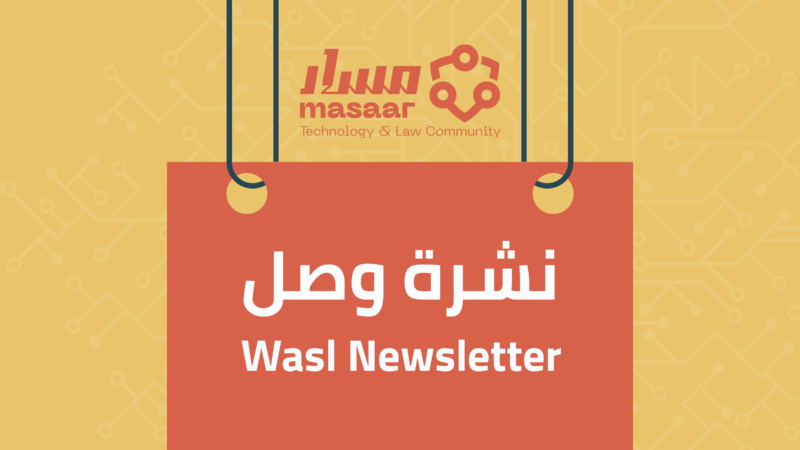
Welcome to the 15th issue of “Wasl”. This edition spotlights our most-read publications on AI governance, human rights and business, and technology and law, alongside upcoming events like Bread & Net 2025 in Beirut. Explore our latest research, insights from across the Arab region, and tune in to the newest episode of the CONNECT Podcast.
Register Now to Attend Bread&Net25
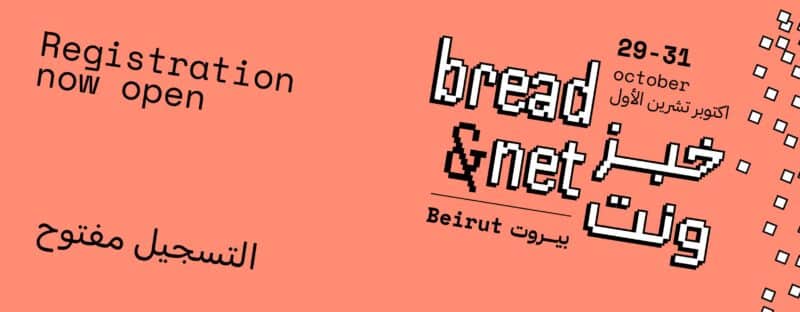
Registration is now open for Bread & Net 25, taking place in Beirut from October 29 to 31.
Bread&Net is an annual unconference that brings together activists, technologists, journalists, and policymakers to discuss and reimagine digital rights and social justice in the Arabic-speaking region. Organized by SMEX, Bread&Net offers a collaborative space for learning, strategizing, and building networks of solidarity. Masaar is a proud partner of Bread&Net, which will cover several tracks related to digital rights, including Privacy and Data Governance, Corporate Accountability: Business and Human Rights, and AI and Emerging Tech. Register Now!
Top Reads from Masaar
Sectoral Governance of AI as an Alternative to a Comprehensive Law in Egypt
In recent months, official and media discussions have intensified around the introduction of a comprehensive AI law in Egypt. While such an initiative may appear to be a step toward keeping pace with global developments, rushing to enact such a law could risk undermining human rights safeguards or imposing stifling restrictions that hinder innovation and creativity. In this paper, Masaar proposes an alternative approach: a flexible, sector-based governance model that adopts a gradual set of regulatory tools tailored to the specific needs and characteristics of each field. English | Arabic
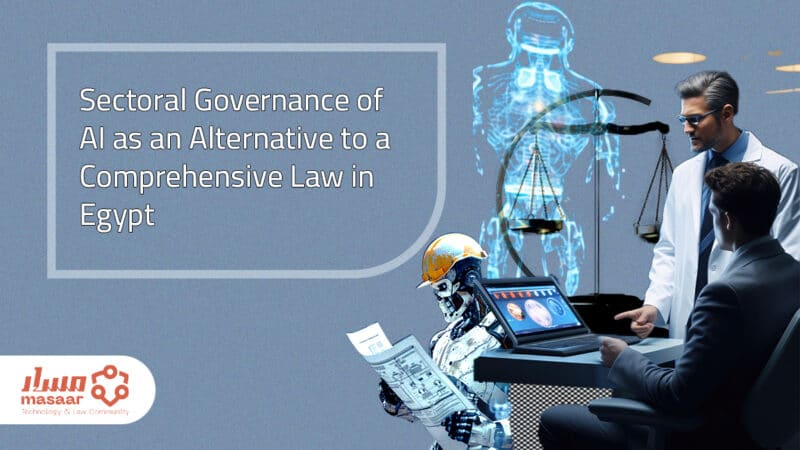
5G Networks in Egypt: Between Human Rights Risks and Development Opportunities
This paper discusses the introduction of 5G networks in Egypt and their implications for citizens’ daily lives and fundamental rights. It also provides a simplified technical background on 5G and its functions. Furthermore, the paper examines the 5G rollout roadmap in Egypt, identifying key stakeholders (governmental, private, and international), before analyzing the most prominent human rights risks associated with 5G applications. English | Arabic
First Judicial Application of the Personal Data Protection Law: A Reading of a Compensation Ruling Against Orange
In February 2025, the Alexandria Economic Court ruled that Orange Egypt Telecom would pay EGP 10 million in compensation to a woman whose personal data had been violated. This paper analyzes the reasoning behind the judgment under the Personal Data Protection Law. It examines the new judicial principles established by the court regarding telecommunications companies’ responsibilities in safeguarding customer data. English | Arabic
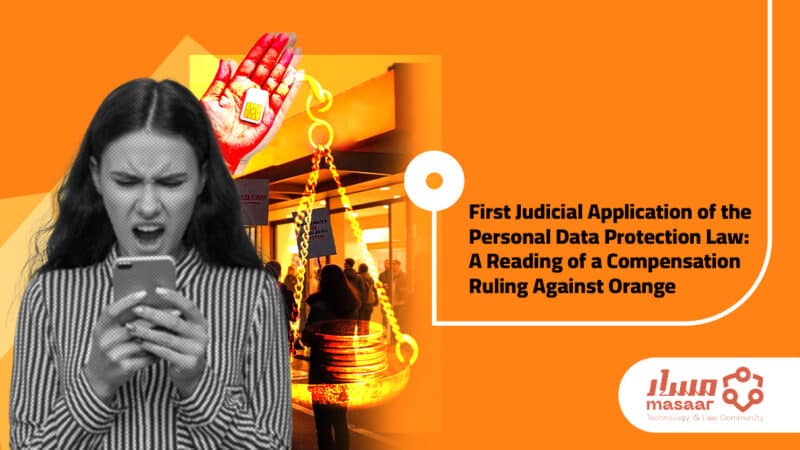
Why Do Social Media Platforms Fail to Address Gender-Based Violence?
Social media platforms represent the most dominant form of digital technology and internet use today. As such, they are now the most influential spaces for social interaction in individuals and communities worldwide. This paper examines the impact of social media platform policies on the growth and persistence of cyber gender-based violence. It also discusses how social media business models contribute to the rise of such violence and highlights the structural weaknesses in existing protective policies. English | Arabic
Network Congestion: An Analysis of the Ramses Central Fire and Its Impact on the Internet
On 7 July 2025, a massive fire broke out at the Ramses Central Exchange in downtown Cairo. Within minutes, the incident escalated into a nationwide digital crisis. Major internet networks collapsed one after another, essential services came to a halt, and millions of users were plunged into digital isolation that lasted for many hours. This paper examines the impact of the fire on Egypt’s internet network, drawing on data from Cloudflare Radar and IODA. English | Arabic
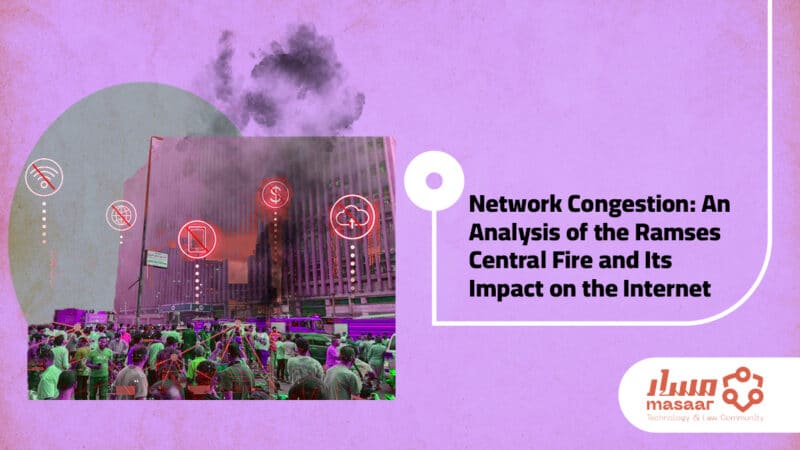
Powers and Oversight in the Digital Space: The Crime of Operating a Website without a License and the Authority of the Supreme Council for Media Regulation
The crime of “operating a website without a license” presents a set of complex legal and constitutional challenges in Egypt. Since the introduction of the Press and Media Regulation Law, the licensing requirement has been increasingly applied to a broad range of websites, often extending beyond the explicit scope defined by the law and the Constitution. This paper offers a critical legal analysis of this expanding regulatory framework.English | Arabic
Modern Work Patterns in the New Labor Law: Between Legislative Recognition and Implementation Challenges
In May 2025, the new Labor Law was ratified. For the first time, the law explicitly recognizes modern forms of work, including remote work and work on digital platforms. This paper examines how the law addresses this work arrangement through an analysis of its conceptual and legal framework, the Egyptian context, and an assessment of existing legal gaps—ultimately culminating in practical recommendations to safeguard workers’ rights in the digital economy. English | Arabic
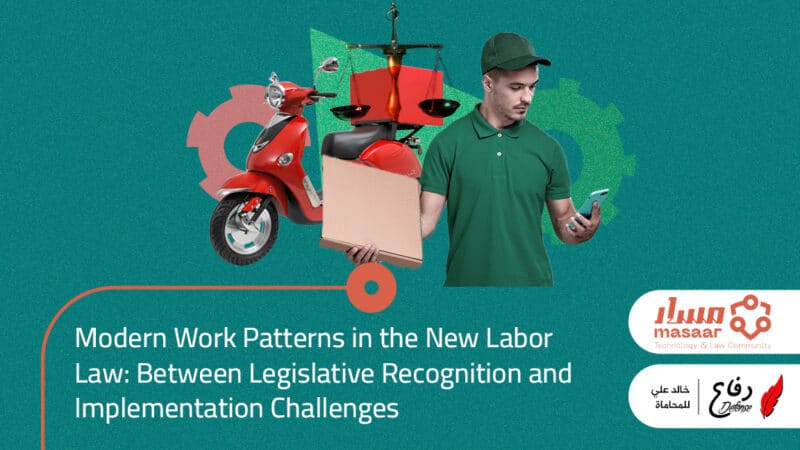
New on “CONNECT” Podcast (Arabic Audio)
- Episode (21): Fake Accounts and Emails: Where Does the Law Stand on Creating Fake Accounts?
Find the podcast at Apple Podcasts | Spotify

From the Arab Region
SMEX | Policy Paper: Reforming Governance in Lebanon’s Mobile Telecom Sector
This policy paper from SMEX delves into the deep-seated governance failures in Lebanon’s mobile telecom sector, proposing a detailed roadmap for reform. Key recommendations include: establishing an independent board of directors, strengthening institutional oversight, setting rigorous KPIs for operators, and clarifying the contractual framework between the state and telecom companies. English | Arabic
7amleh | Meta’s Role in Amplifying Harmful Content Against Palestinians During Genocide in Gaza
7amleh has released a new report that exposes the failure of Meta, the parent company of Facebook, Instagram, and WhatsApp, to protect Palestinians from incitement and hate speech in Hebrew. It reveals the company’s biased policies and complicity in enabling such discourse during the genocidal war on Gaza. English | Arabic
Further Reads from Masaar
Tech and Law
- The Court of Cassation Upholds the Principle of Not Imposing Custodial Sentences on Journalists in Publication Crimes: A Legal Analysis
- The Opportunities and Challenges in Using Strategic Litigation to Defend Digital Rights
- Criminal Justice in the Digital Age: How Technology Is Reshaping the Landscape of Justice
- Substantive Defense Memorandum – Crime of Operating a Website Without a License
- Rethinking Cybercrime: New Crimes or New Technologies for Old Crimes?
Human Rights and Business
- Echo Chambers and Recommendation Algorithms: Who Decides What We See Online?
English | Arabic
- Digital Technology and Education in Egypt: Development Ambitions Confronting the Constraints of Reality
- Social Media and Democracy: How Social Media Platforms Undermine the Foundations of Democracy
- IPv6 and Digital Rights in Egypt: Towards a More Efficient, Free, and Inclusive Internet
- Digital Marketing and User Rights: How Do Algorithms Influence Our Decisions?
Artificial Intelligence
- Regulating Artificial Intelligence in Egypt: Proposed Standards and Principles
- AI and Democracy: How is Decision-Making Being Reshaped?
Privacy
- Privacy Rights in the Fintech Era: Examining the Egyptian Legal Framework and its Implementation Hurdles
- The Right to Encryption: Why Should Encryption Be a Human Right?
Internet Governance
- Between Ambition and Implementation: A Critical Reading of Egypt’s E-Government Experience
- The Right to Use Radio Spectrum in Egypt: Towards Equitable Digital Governance of a Scarce Resource
Tech and Equality
- Gender Sensitivity in Digital Technology: Approaches for Designing Tools that Promote Justice and Equality
